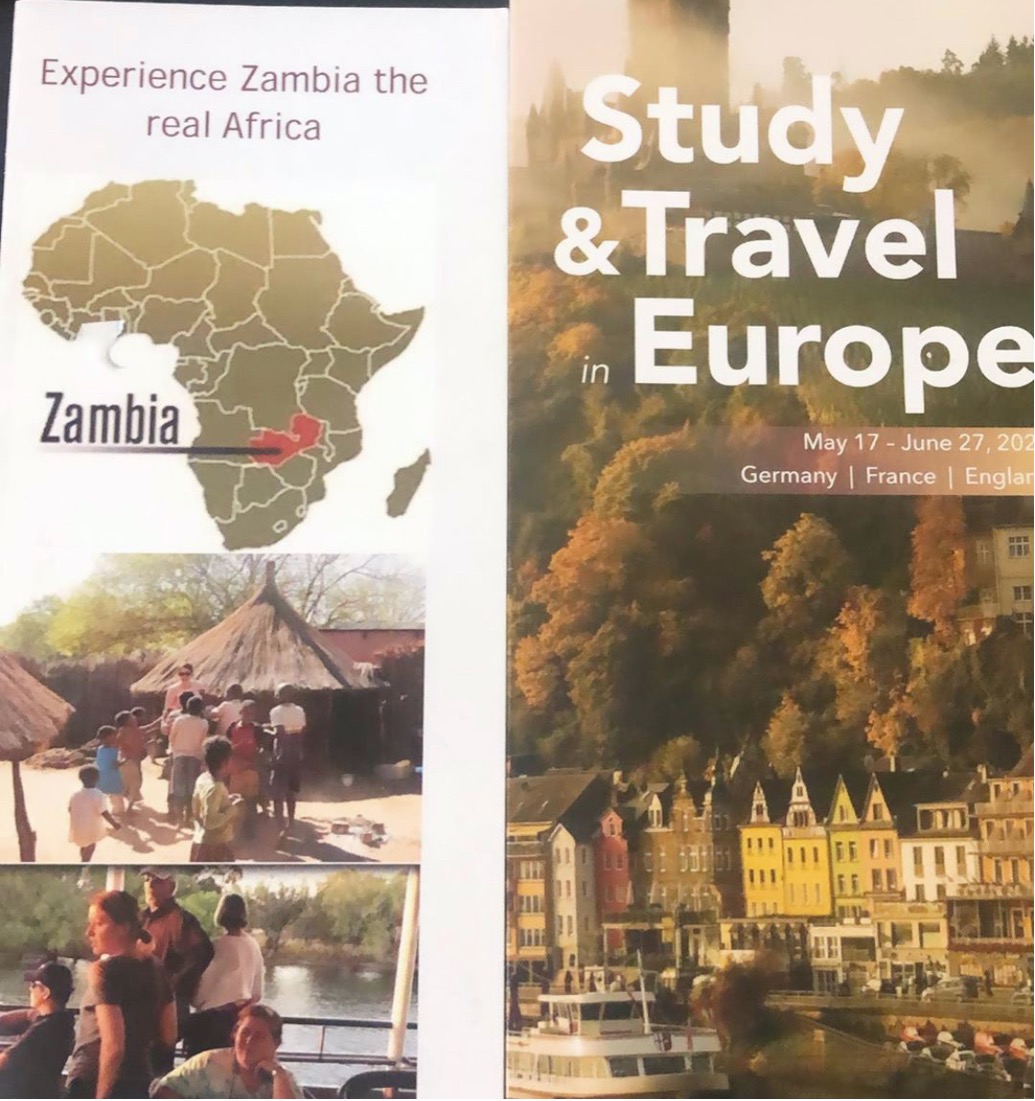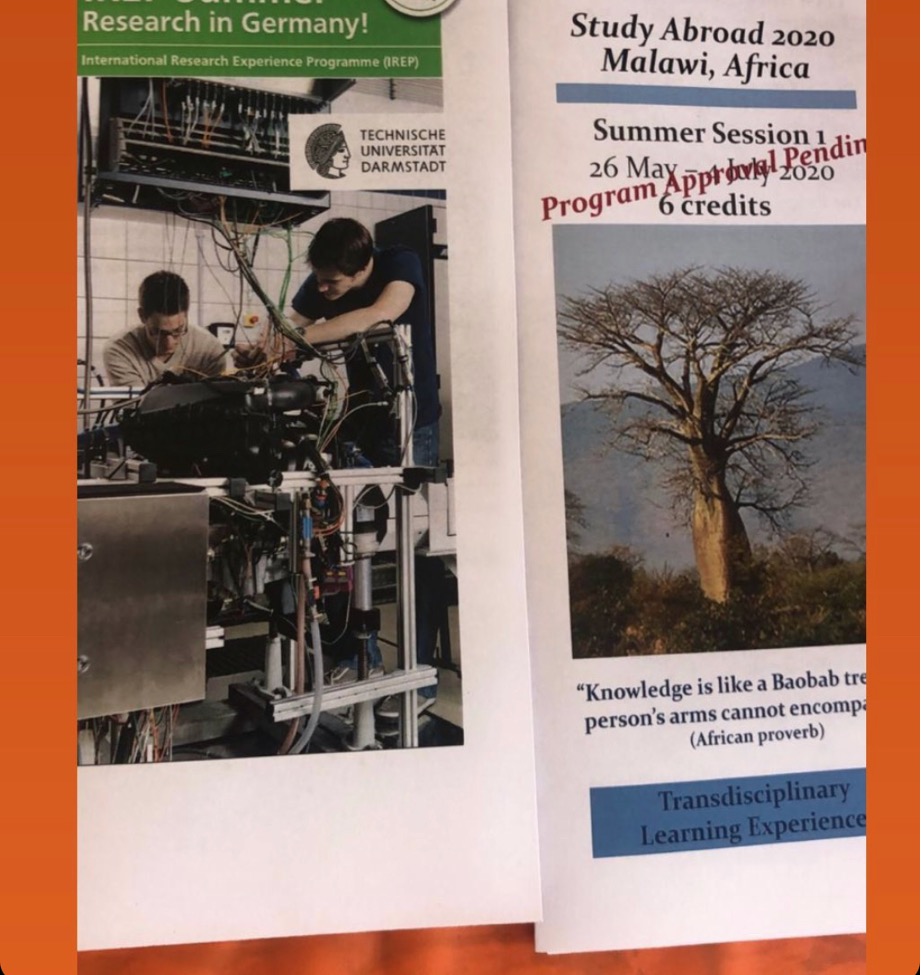Zuleka Woods: Studying study abroad

The following story was written in November 2021 by RJ Loyd in ENGL 4824: Science Writing as part of a collaboration between the English department and the Center for Communicating Science.
Grass huts, poor children, and a beautiful jungle—or a high-tech lab at a university and a scenic village? Most of us have seen many flyers and posters for study abroad programs. But how many times have you thought about why the images representing the destination were chosen?
Probably never, which is exactly why Zuleka Woods is doing her research on study abroad images.
Woods is a 3rd year Ph.D. student in the Planning, Governance, and Globalization Program at Virginia Tech, as well as a master’s student in public health. Her research focuses on how countries and people outside of Western cultures are represented in study abroad programs at U.S. universities.

Woods got interested in this research when she worked in study abroad offices at a university in Boston and a small college in Virginia. She noticed big differences in the ways in which countries were portrayed.
“Specifically, the ones for Africa were very safari oriented or would have an elephant on it,” she said, “or the programs to South America would have an image of the rainforest.”
Woods wants to know if the representation of these non-Western places and people in study abroad materials is based on stereotype and to understand the logic behind this representation.

Since many of the places traveled to in study abroad programs are countries that students have never visited, the images used in study abroad materials can shape how students think about those places and what they expect. With this in mind, Woods would like to see a shift toward more thought being put into the representation of countries in the design of study abroad promotional materials. She wants the designers of study abroad materials to understand the implications of the representation, she said, as well as be respectful of people and places and not rely on stereotypes.
Woods has a personal connection to the research. As someone originally from West Africa, specifically Liberia, Woods gets asked very often where she's from. She knows how important it is to be respectful and intentional in how different cultures are represented. Woods believes that study abroad programs can provide the opportunity to have conversations that help students understand other cultures—but only when places are given intentionally respectful representation within the program.

Currently Woods’ research is in the planning process while she prepares her research proposal. She plans to work with three or four predominantly white U.S. universities to research their study abroad programs. She will do a content analysis of these programs, meaning she will look at their advertising, including flyers and brochures, their social media, and their websites to investigate how different places and people are being represented. She then plans to compare the different representations across all of the universities she studies.
Woods also plans to interview the people who work at the study abroad offices, the students who have participated in the study abroad programs, and the people in the destination countries who work with students. She plans to use her findings to make recommendations for study abroad programs related to how countries can be better represented in promotional materials.
Woods wants to apply her research to study abroad offices everywhere, which she hopes will start at Virginia Tech. She plans to work with the Public Health program to create a new study abroad focused on global health and to design promotional materials that do not rely on stereotypical images. Woods also wants her research to be available to any study abroad office so that more offices can learn how to make their representation respectful and how to be more aware of the implications of their study abroad materials.
Many people outside of her field ask her why she wants to do this research and if it will actually change anything, Woods said.
“Sometimes research is not just answering a question that can change the world or fix the world,” she responds. “It would be nice if everybody thought about it [representing people and places intentionally] and changed, but for me it’s the satisfaction of having people think about it. A lot of times we think about whether or not we changed, but I think it’s more important to have people think about this and how we represent people outside of our cultures in general.”


